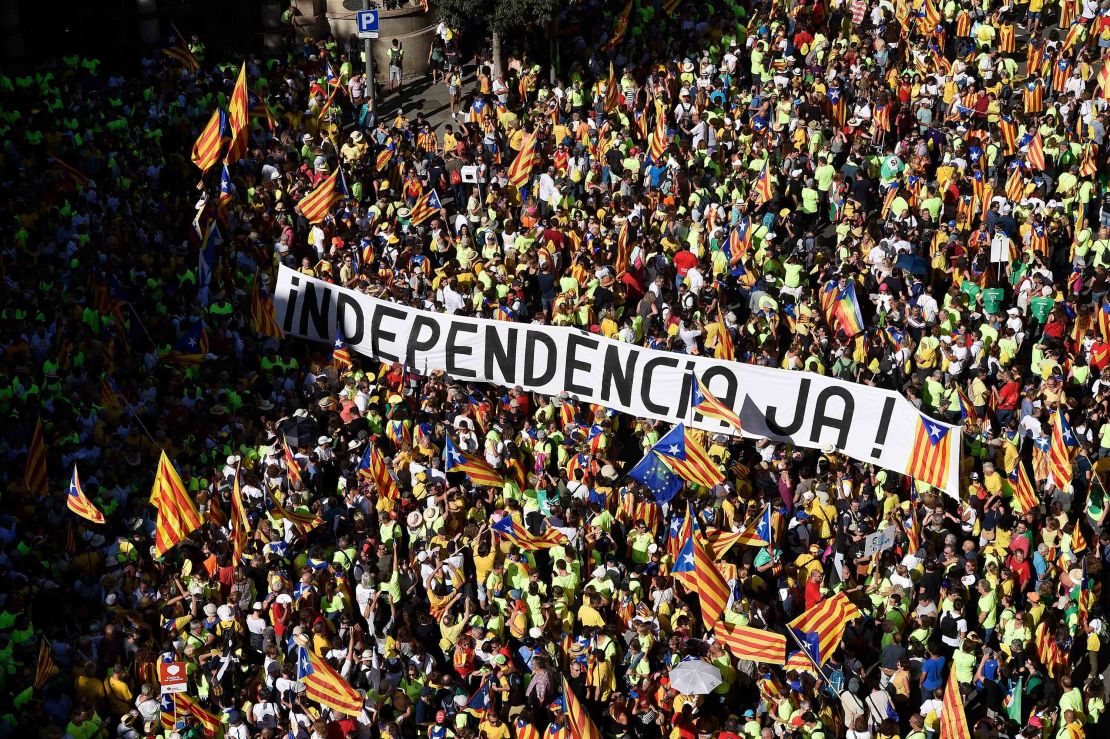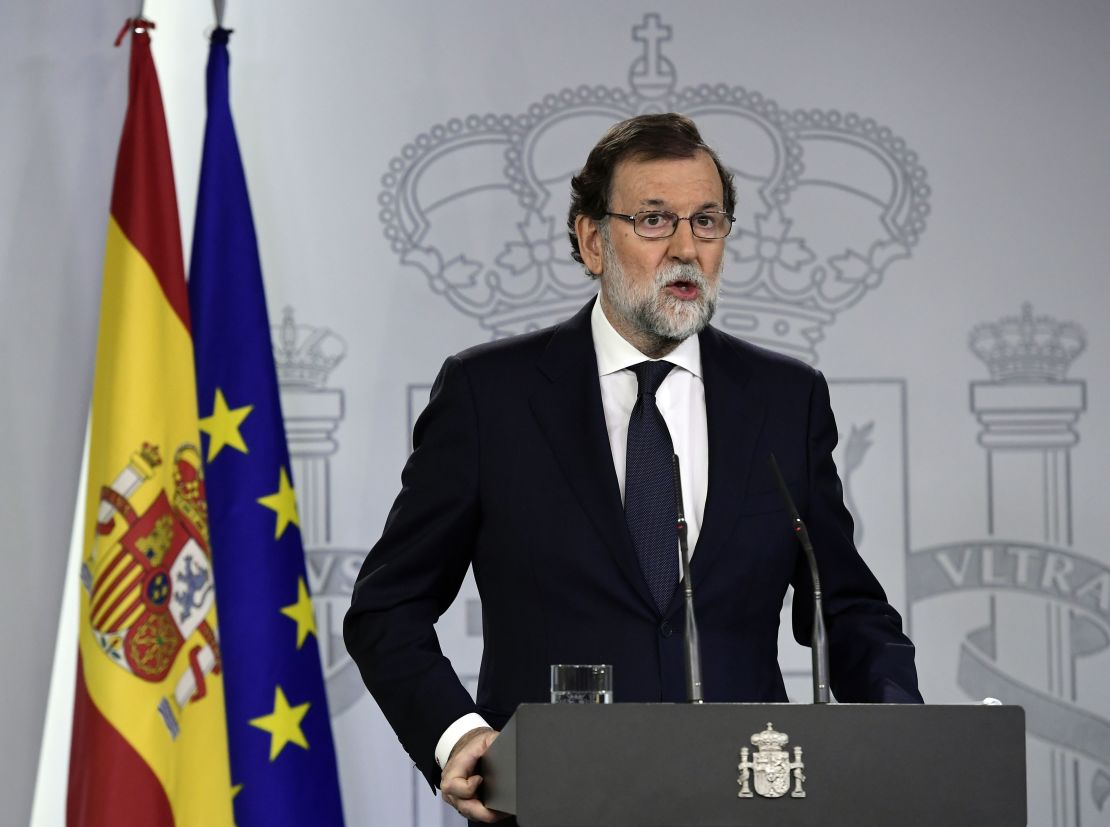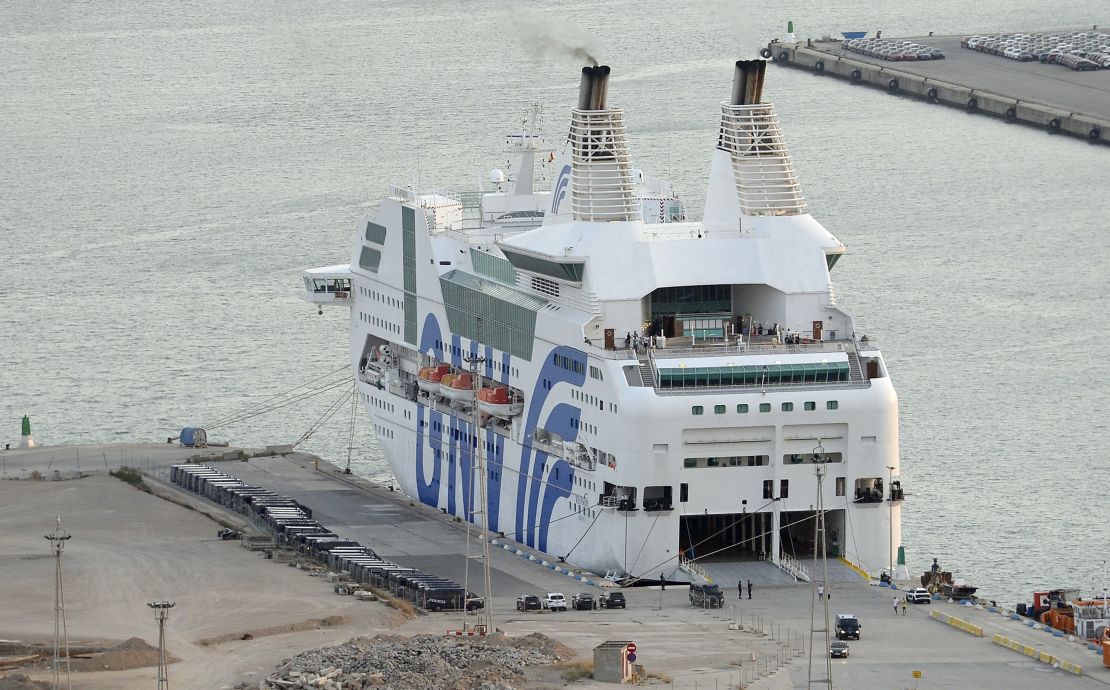Catalonia’s separatist government is adamant it will go ahead with a referendum on October 1 to decide if the region should split from Spain, despite the country’s highest court banning the vote.
Spain’s Constitutional Court has outlawed the plebiscite, and the national administration in Madrid asserts that any such vote would be unconstitutional.
The dispute between the regional government in Barcelona and the Spanish government has become increasingly bitter in recent weeks, with several high-ranking Catalan officials involved in organizing the referendum arrested, and mass protests in the region’s capital of Barcelona and other towns.
On Tuesday, US President Donald Trump weighed in on the debate, casting doubt on recent polling suggesting a “Yes” vote will win and saying that he is for “a united Spain.”
“I really think the people of Catalonia would stay with Spain. I think it would be foolish not to.”
The vote risks plunging the country into one of its worst political crises since the end of Gen. Francisco Franco’s dictatorship four decades ago.

The basics…
Catalonia is a wealthy region in Spain’s northeast. One of 17 autonomous provinces, it has its own regional government – or Generalitat – which already has considerable powers over healthcare, education and tax collection.
But it pays tax to Madrid, and pro-independence politicians argue that complex mechanisms for redistributing tax revenue are unfair on wealthier areas.?
Catalonia has long complained that its revenues subsidize other parts of Spain. The region hosts some 16% of the Spanish population and much of the country’s manufacturing and finance sectors.
Catalan nationalists argue that they are a separate nation with their own history, culture and language and that they should have increased fiscal independence.

How did we get here?
The long-running dispute goes back to the brutal years under Franco, whose dictatorial regime repressed Catalonia’s earlier limited autonomy. It wasn’t until four years after his death in 1979 that the region gained full autonomy.
In 2006, the Spanish government backed Catalonia’s calls for greater powers granting “nation” status and financial control to the region.
But it was one step forward and two steps back four years later, when that status was rescinded by the Constitutional Court, which ruled that while Catalan is a “nationality,” Catalonia is not a nation itself.

Catalonia’s campaign to break away has been gaining momentum since 2010, when Spain’s economy plunged during the financial crisis. It was further galvanized by the Scottish referendum for independence in 2014, which ultimately saw voters opt to remain part of the United Kingdom.
Catalonia held a symbolic poll in 2014, in which 80% of voters backed complete secession – but only 32% of the electorate turned out.
What’s behind this latest drive?
Catalan leader Carles Puigdemont has fought to establish an independent Catalan state since taking office last January, and called the referendum in June.
A month later, the Generalitat approved a law allowing it to formalize plans for the October plebiscite.
But it would appear support for an autonomous Catalan state has fallen in recent months, according to a June poll conducted on behalf of the regional government. The survey indicated some 41.1% were for independence, down from 44.3% in March.
Where does Madrid stand?
Firmly against Catalan independence, the central government has vowed to shut down what it says is an “illegal” referendum. It has the authority to do this, under Article 155 of the Spanish constitution.

Madrid asked the Constitutional Court to suspend Catalonia’s referendum law, which had paved the way for the ballot. Spain’s high court is now investigating whether the regional government has breached the constitution.
Spanish Prime Minister Mariano Rajoy, who leads the conservative Popular Party, has consistently argued that Catalonia cannot leave Spain because the country is indivisible, according to the 1978 constitution.
“What we have seen in Catalonia is an attempt to liquidize national sovereignty,” he said in a recent address posted to his official Twitter account, adding that all Spaniards should have a say in what their country looks like.
Police, acting under a court order, seized almost 10 million papers relating to the upcoming ballot at a warehouse in an industrial estate near Barcelona last week. Voter lists, signs and paperwork for counting votes were also confiscated.
Additional state police have been deployed to the region in the days leading up to the ballot to maintain order and prevent the vote taking place, Reuters reported, citing the Spanish Interior Ministry.

Despite these actions, Puigdemont says he intends to defy Madrid’s orders and has called upon Catalan citizens to “defend democracy against a repressive and intimidating regime” by going to the polls to vote as planned.
And sports stars are weighing in?
The referendum row is a divisive subject across Spain, but some homegrown heroes have made their feelings clear.
Barcelona’s football club has backed the referendum.
“FC Barcelona in remaining faithful to its historic commitment to the defence of the nation, to democracy, to freedom of speech, and to self-determination, condemns any act that may impede the free exercise of these rights,” it said in a statement posted to its official Twitter account.
Manchester City (and former Barcelona) manager?Pep Guardiola?has also joined the pro-independence campaign, showing his support for Catalonia at separatist demonstrations.

But others have been somewhat reluctant to reveal their thoughts.
World no.1 men’s tennis player Rafael Nadal chose a different approach when asked about the upcoming vote.
“I can’t imagine Spain without Catalonia and Catalonia without Spain. I don’t want to see it,” he said at a recent press conference in Prague, according to Bloomberg.
Nadal added that he hoped the two sides would come together to work things out: “We don’t want fights, we don’t want problems I believe we are much better together and stronger.”
What happens if the vote goes ahead?
It’s unclear at this point – but Madrid insists there will be consequences if the referendum goes ahead.
And if it does get as far as a vote, those who do enter the voting booth will see a single question: Do you want Catalonia to become an independent state, in the form of a republic?
Should the Electoral Commission declare victory for the “Yes” campaign, Puigdemont has said the Generalitat will declare independence within 48 hours, Reuters reported, while a “No” vote would likely spark an early election.


